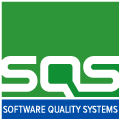The acronym ERP stands for “enterprise resource planning system”, therefore, having an ERP system in companies will facilitate the management of the different operations carried out (logistics, purchasing, warehouse, accounting …) automatically, from the same platform and with a shared database. ERP systems represent a high investment for companies, but it directly results in their productivity by optimizing management processes, guaranteeing data security, offering greater control and traceability in all processes and automating numerous tasks.
The ERP systems that we can find in the market are made up of modules prepared to manage the generic processes of each sector, but their implementation in a company requires specific configuration and programming activities to guarantee their adaptation to specific processes, as well as their integration with other IT systems.
Thus, SQS has extensive experience both in designing and executing test processes for different ERP systems that are available in the market (that is, the modular solutions that will subsequently be adapted and implemented in companies), and in undertaking validation and testing activities for the implantation of ERP systems in clients.
We would like to focus on this second point, that is, on the tests carried out to ensure that the implementation of this type of system is correct, works as expected and is fully operational before the full launch. In this sense, carrying out the review and testing activities during the different stages of the implementation process will avoid unpleasant surprises related to a malfunction once started and will reduce the number of errors that, in the absence of a correct testing process, would appear.
Which are the fundamental type of test we should consider?
Each type of tests allows us to guarantee the functionality of a different aspect of the system, thus we have:
- Functionality tests: carried out to guarantee that each module and that the complete system performs its function as expected after customizing the ERP according to the needs of the organization.
- Performance tests: to analyze the behavior of the implantation before different load volumes. They will allow us to have clear information on the operation of the solution when it communicates with the various systems with which it is integrated. Performance tests should simulate high volumes of data flow and the most demanding transactions that can occur to ensure that the system responds to the highest potential demands. ·
- Integration tests: they help us to verify that the ERP system has fully and effectively integrated the various processes that it must execute and that it integrates correctly with other systems of the company. To carry out this type of tests, we must simulate real scenarios that reproduce the activity that users will carry out and, in this way, we will be able to determine if the ERP meets the needs of the company. ·
- Pruebas de seguridad: Un sistema ERP contiene y maneja datos relevantes para una empresa y, por lo tanto, garantizar la seguridad es de vital importancia. Estas pruebas están orientadas a conseguir minimizar las vulnerabilidades de una implantación. ·
- Security tests: An ERP system contains and manages relevant data and, therefore, ensuring security is of vital importance. These tests are aimed at minimizing the vulnerabilities of an implementation.
What is the fundamental improvement we achieve with automation?
- Ahorro de tiempo, coste y recursos y mejora de la Calidad: Un sistema ERP es un sistema complejo, que involucra muchos procesos y subprocesos y vincula sistemas diferentes. Como todo sistema está sometido a cambios. Garantizar que el correcto funcionamiento del sistema tras lo cambios obliga a realizar pruebas de regresión, que en general, suponen un coste elevado de recursos y tiempo.
- Time, cost and resource savings and quality improvement: An ERP system is a complex system, involving many processes and subprocesses and linking different systems. Like any system is subject to change periodically. Ensuring that the correct operation of the system after the changes requires performing regression tests, which in general entail a high cost of resources and time.
Automation is a key tool to reduce the effort and time of regression testing. It is also an essential piece to increase the coverage of the tests and with it, the quality guarantee of a system.
As we said, given the complexity in the architecture of these systems, the experience of professionals testing these types of systems and their implementation will be vital to test the system, to design and set up optimal automated test environments and to solve all the problems that may be found.





